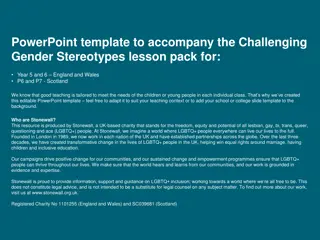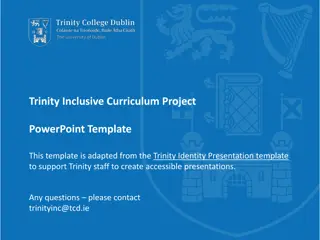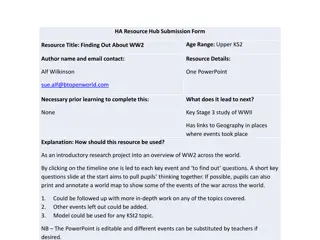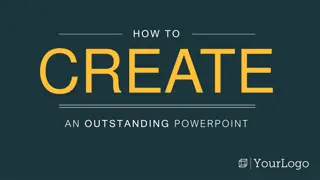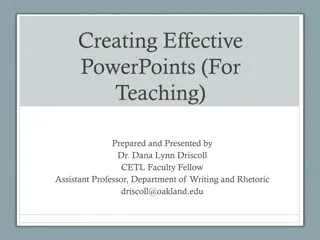
Exploring Diversity in Worldviews - Understanding Different Paths to God
Delve into the complexities of various theistic beliefs, from polytheism to monotheism, and learn how Christians can engage in meaningful conversations about faith and spirituality in a multicultural world.
Download Presentation

Please find below an Image/Link to download the presentation.
The content on the website is provided AS IS for your information and personal use only. It may not be sold, licensed, or shared on other websites without obtaining consent from the author. If you encounter any issues during the download, it is possible that the publisher has removed the file from their server.
You are allowed to download the files provided on this website for personal or commercial use, subject to the condition that they are used lawfully. All files are the property of their respective owners.
The content on the website is provided AS IS for your information and personal use only. It may not be sold, licensed, or shared on other websites without obtaining consent from the author.
E N D
Presentation Transcript
ANSWERING THE TOUGH QUESTIONS ABOUT CHRISTIANITY WHICH GOD DO I CHOOSE?
THINK ABOUT THIS Don't all world religions lead to the same god?
LESSON AT A GLANCE A person who incorporates a supreme entity into their worldview has several options from which to choose. At a minimum, they must decide how many supreme entities there are and how to describe the relationship between the entity(ies) and creation.
CONVERSATION EXAMPLE Your father-in-law tells you he believes in God but that there are many paths to find God.
CONVERSATION EXAMPLE This lesson will show that the gods worshiped by the world religions are very different, as are their paths to those gods, so you can help your father-in-law see the need for him to choose the truth about God.
THEISM Theism is the belief that a god or supreme being is involved [e.g., creates, intervenes, etc.] in the world around us. People who believe in a supernatural god, supreme being, or unifying force are called theists.
ADDING CLARITY Today, the most widely held theistic worldviews (i.e., worldviews that include a god) are: Polytheism ("poly"- more than one, "theos"- god) Pantheism ("pan"- all, "theos"- god) Monotheism ("mono"- one, "theos"- god)
GOSPEL FOCUS Understanding how followers of other religions are taught they interact with their supreme entity allows Christians the opportunity to highlight the hope of our beliefs, including:
GOSPEL FOCUS Our belief is in God, who loves humanity and is involved in our lives daily. Our assurance of a relationship and fellowship with God through His grace and mercy in Christ that begins at conversion and lasts for eternity.
1. POLYTHEISM IS THE BELIEF IN MANY GODS.
Hinduism is the most popular polytheistic religion in the world. About 15% of people on the planet practice some form of this faith. One count of the gods in Hinduism reveals there are thousands.
The "ultimate reality" of Hinduism is called the Absolute (or Brahman). Brahman is not a deity like the Christian God but an impersonal ultimate truth and power outside of which all life and all reality cannot exist.
Buddhism has its roots in Hinduism, so followers also believe in the Absolute. In addition, most Buddhists believe that other supernatural gods and demons are just different forms of life available to mankind through reincarnation in the progression to enlightenment and Nirvana.
The Absolute is beyond good or evil. Individuals who recognize good and evil reflect that they have not yet achieved oneness with the Absolute. To become part of the Absolute, a person must achieve nonattachment or enlightenment (belief that there is no good or evil).
Hindus believe that "[a]ll good and all evil is relative to the individual point of growth...But in the highest sense there can be neither good nor evil" (Bhagavad-Gita, 140). Hindus and Buddhists believe that when they reach perfection or "moksha," they become one with the Absolute (e.g., think of a drop of rain falling into the ocean).
What do you see are major differences between a Christian and a Hindu or Buddhist? Discuss
2. PANTHEISM BELIEVES GOD AND CREATION ARE NOT SEPARATE.
Pantheism adherents believe that everything in the natural world is God - humans, animals, plants, rocks, water, and air are all God. In other words, "all is God, and God is all." Most Hindus and Buddhists are pantheistic as well as polytheistic.
Because the pantheistic Absolute is not separate from creation, this worldview rules out the possibility of miracles because only something outside of creation can intervene in this manner.
Thus, pantheists reject the Christian belief in God's miraculous intervention in the world through: Prophecy The incarnation of Jesus God's inspiration of the Bible, etc.
Some Hindus believe that everything we perceive as reality is the Absolute's illusion (i.e., a figment of the Absolute's "imagination.")
How would you compare the Christian God to the Hindu "Absolute"? Discuss
3. MONOTHEISM IS THE BELIEF IN ONE GOD.
The two major worldwide monotheistic religions are Islam and Christianity, with almost 2 billion followers each. Judaism is also monotheistic, but it has only about 15 million adherents.
Unlike pantheists, all monotheists believe God is separate and distinct from creation.
The term "Islam" is Arabic for "submission." Allah is the god of Islam. Muslims consider Allah to be so far above humanity that there is no way mankind can have a personal relationship with him.
Another significant difference between Islam and Christianity is the concept of the Trinity. To have more than one god is unthinkable to a Muslim, and they consider the Christian Trinity (Father, Son, and Holy Spirit) as polytheistic.
The goal of a Muslim is to obtain a place in Jannah (Paradise). For a man, some Muslim teachers conclude Jannah is filled with hedonistic pleasures such as gardens, wine that has no aftereffects, and beautiful maidens (houris) untouched before by...men.
For a woman, Jannah promises her youthful looks again and eternity with either her husband (if he is found worthy of a place in Jannah), another eternal partner provided by Allah, or contentment with her singleness.
What have you learned about Islam that may be an opportunity to start a spiritual conversation with a Muslim you may know? Discuss
All major world religions other than Christianity appeal to man's need to do something to obtain the approval of their supreme entity. Reflect
According to Hinduism and Buddhism, a person is a god who has multiple chances through reincarnation to realize their godhood and eliminate their karmic debt, at which time they will be absorbed into Brahman (the Absolute for Buddhists) Reflect
For Muslims, approval is based solely on their god s assessment of their following the rules and performing "good works." Reflect
Only in Christianity does God reveal Himself as a loving Father who unilaterally reconciles fallen humanity to Himself by His grace and mercy through the sacrifice of His Son, Jesus. Reflect
How can a Christian make the same mistake about God that the followers of other religions make? Discuss
Do you believe God when He says in the Bible that Jesus is the only way to Him? Respon d
List names of people you know who belong to a religion other than Christianity. Apply
Think about how you might respond to their questions about Christianity and study those topics to be prepared to converse with them. Apply
Consider what questions you might ask them and how an understanding of their beliefs could provide opportunities for further discussion. Apply
Pray about starting spiritual conversations with them and follow the Holy Spirit's guidance Apply

